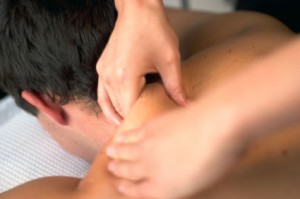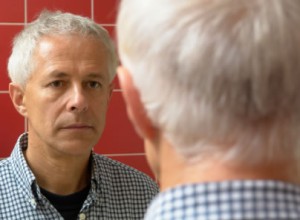 A new randomized trial shows that on average, three months after receiving a series of 10 massage sessions, patients had half the symptoms of anxiety. This improvement resembles that previously reported with psychotherapy, medications, or both. But the trial, published in the journal Depression and Anxiety, also found massage to be no more effective than simple relaxation in a room alone with soft, soothing music. [continue reading…]
A new randomized trial shows that on average, three months after receiving a series of 10 massage sessions, patients had half the symptoms of anxiety. This improvement resembles that previously reported with psychotherapy, medications, or both. But the trial, published in the journal Depression and Anxiety, also found massage to be no more effective than simple relaxation in a room alone with soft, soothing music. [continue reading…]
Anxiety

Since at least the days of Socrates, humans have been advised to “know thyself.”
And through all the years, many, including many personality and social psychologists, have believed the individual is the best judge of his or her own personality.
Now a psychologist at Washington University in St. Louis has shown that we are not the know-it-alls that we think we are. [continue reading…]
Psychodynamic psychotherapy is effective for a wide range of mental health symptoms, including depression, anxiety, panic and stress-related physical ailments, and the benefits of the therapy grow after treatment has ended, according to new research published by the American Psychological Association.
Psychodynamic therapy focuses on the psychological roots of emotional suffering. Its hallmarks are self-reflection and self-examination, and the use of the relationship between therapist and patient as a window into problematic relationship patterns in the patient’s life. Its goal is not only to alleviate the most obvious symptoms but to help people lead healthier lives. [continue reading…]
Anxiety sensitivity, or the fear of feeling anxious, may put people who are already above-average worriers at risk for depression, according to Penn State researchers. Understanding how sensitivity to anxiety is a risk factor for depression may make anxiety sensitivity a potential target for treating depression in the future. [continue reading…]
